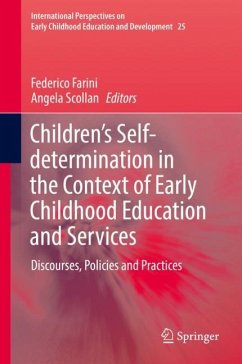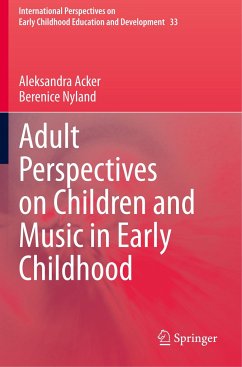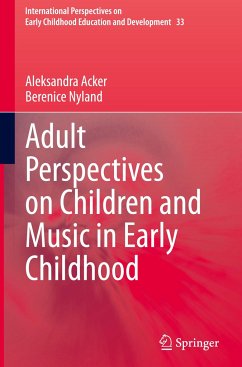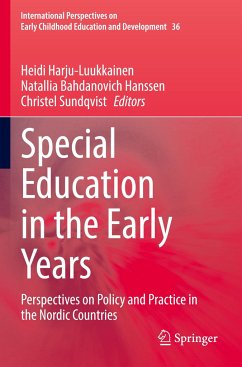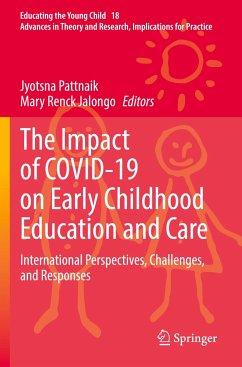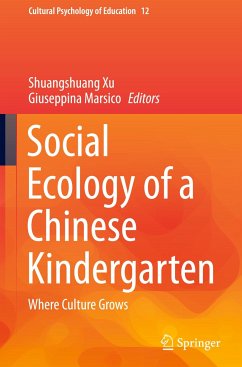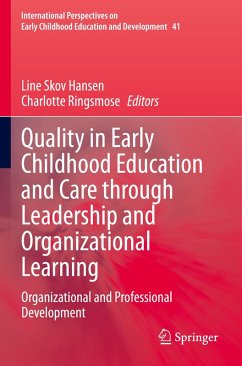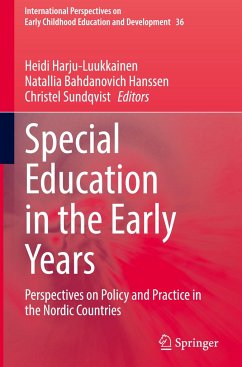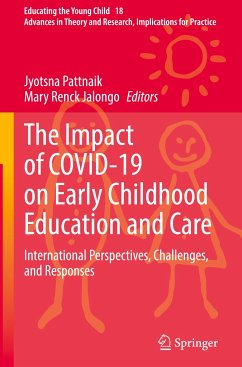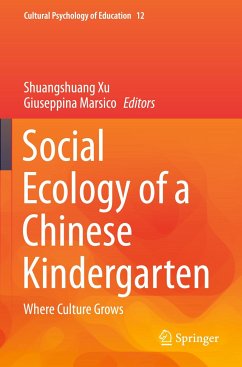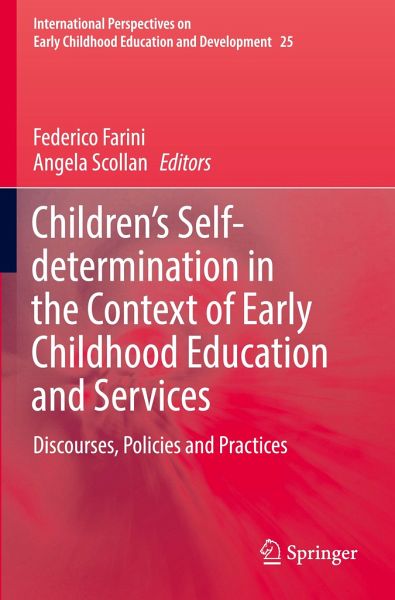
Children's Self-determination in the Context of Early Childhood Education and Services
Discourses, Policies and Practices
Herausgegeben: Farini, Federico; Scollan, Angela
Versandkostenfrei!
Versandfertig in 6-10 Tagen
113,99 €
inkl. MwSt.

PAYBACK Punkte
57 °P sammeln!
This book investigates the position of young children's self-determination within a range of social contexts, such as education, social care, mass-media, health, politics, law and the family. It brings to the fore the voices of the children in the present, with their interests, agendas and rights. Based on original primary research, the chapters tackle hegemonic discourses on children's self-determination as well as current policies and practices. They address a broad range of topics, from the planning of role-play to national policies, from the use of digital technologies for pedagogy to chil...
This book investigates the position of young children's self-determination within a range of social contexts, such as education, social care, mass-media, health, politics, law and the family. It brings to the fore the voices of the children in the present, with their interests, agendas and rights. Based on original primary research, the chapters tackle hegemonic discourses on children's self-determination as well as current policies and practices. They address a broad range of topics, from the planning of role-play to national policies, from the use of digital technologies for pedagogy to children's health and well-being, and from democratic practices in the classroom to the preservation of traditional family values. The book presents case studies to unravel how childhood and young children's self-determination are constructed at the intersection with intergenerational relationships. Coming from different disciplines and using a diverse range of methodological traditions, thecontributions in the volume eventually converge to generate a rich, complex and multi-layered analysis of contemporary cultures of childhood and young children's rights.





